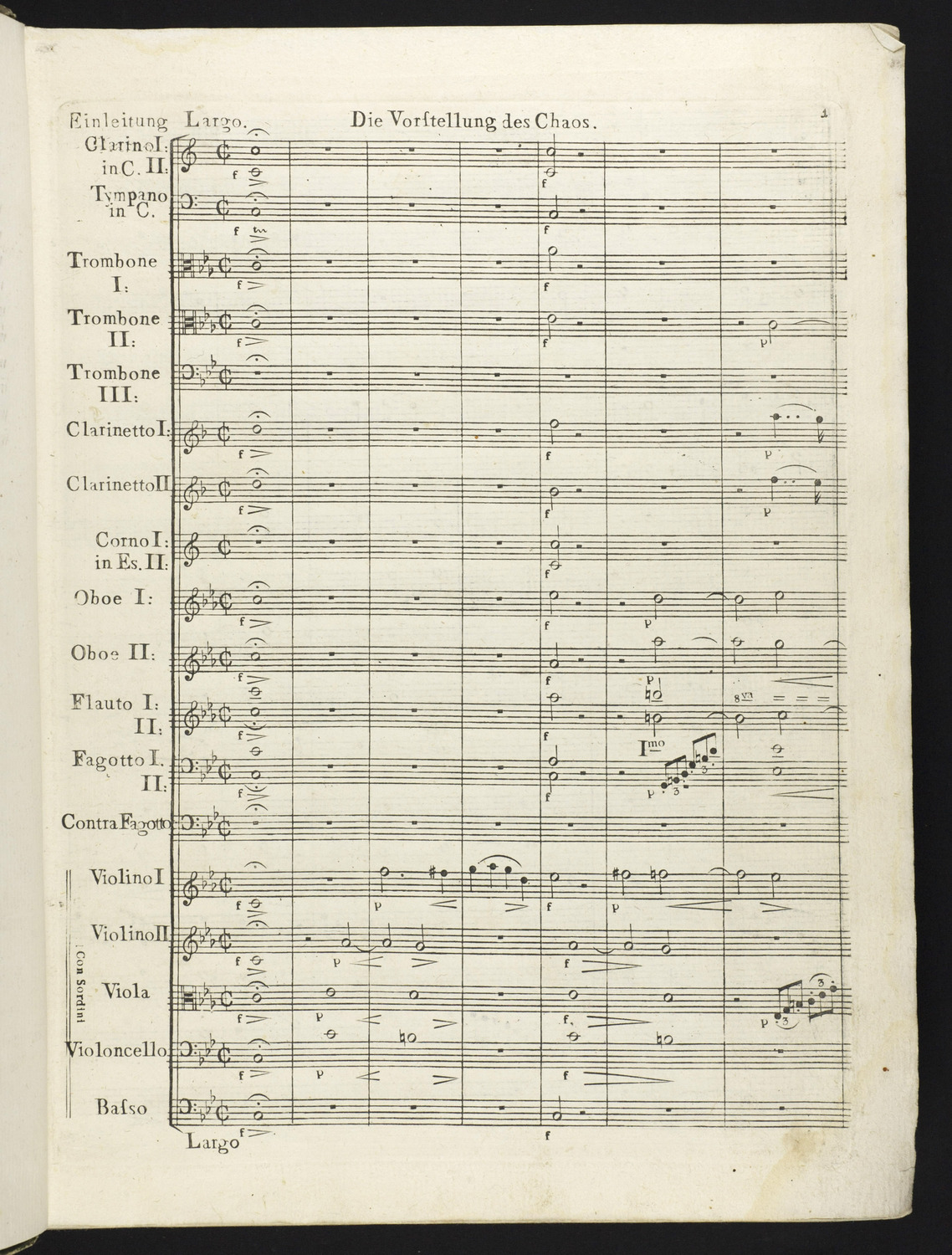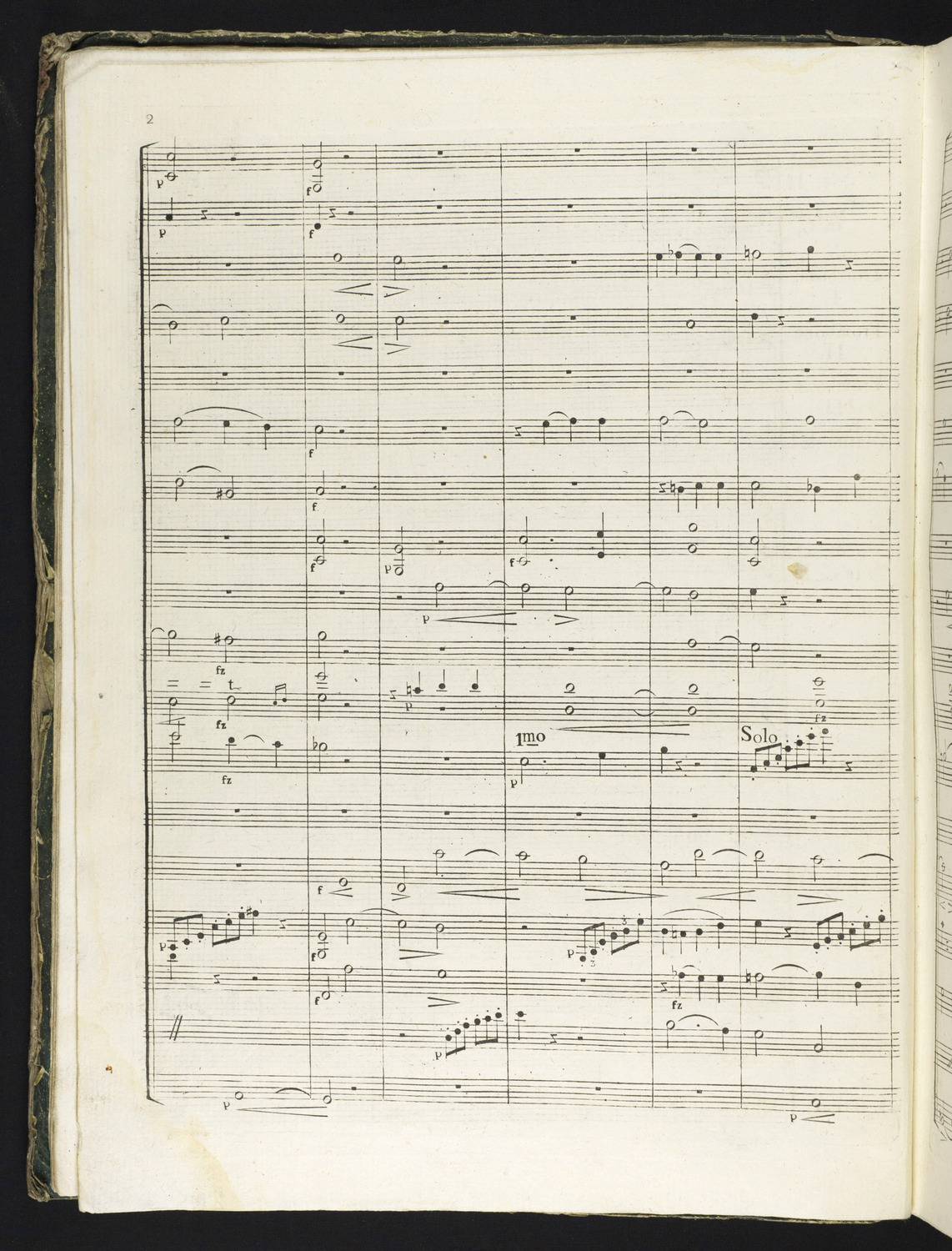Joseph Haydn—The Creation
The Creation is considered one of Haydn’s masterpieces. Equal parts chronicle of the seven days of biblical creation and ode to the goodness of God, this oratorio draws material from the beginning of Genesis, as well as Psalms and Milton’s Paradise Lost. The entire libretto is set in German and English. Haydn chose to do this in order to make The Creation immediately performable internationally. The work premiered at a 1798 private concert in Vienna and was performed publicly there the next year.
The Creation can be seen as a work dealing with the past. First, as the opening “Representation of Chaos” shows, Haydn is considering the limitless eternity before time began. Additionally, he is looking back to Handel’s strong oratorio tradition of around fifty years earlier. The Creation is also a work about Haydn’s present, for throughout the piece, he is at the height of his compositional skill, beautifully using the Classical Era’s musical rules of structure and order to describe the new world being created. The work is also about the future. In the “Representation of Chaos,” one of the few purely instrumental sections of The Creation, Haydn uses a musical language that does not adhere to the established conventions of his day, but rather sounds more akin to that of the following century. He depicts chaos through harmonies that do not resolve as expected in the Classical style. His daring treatment of harmonic motion here is well ahead of its time, as this type of expression did not become common until years later. The segment shown to the right is the opening of Haydn’s “Representation of Chaos,” from the Lilly Library’s first-edition score, published in 1800.


